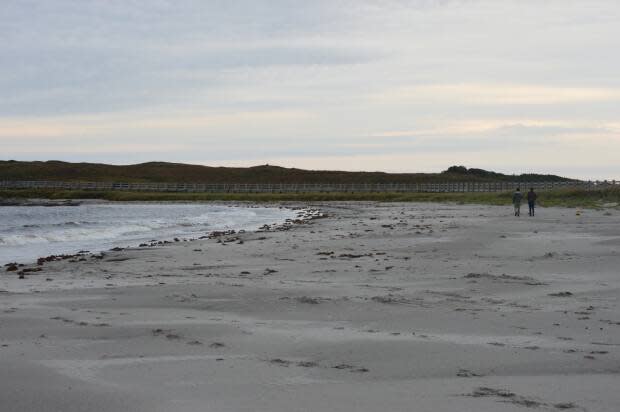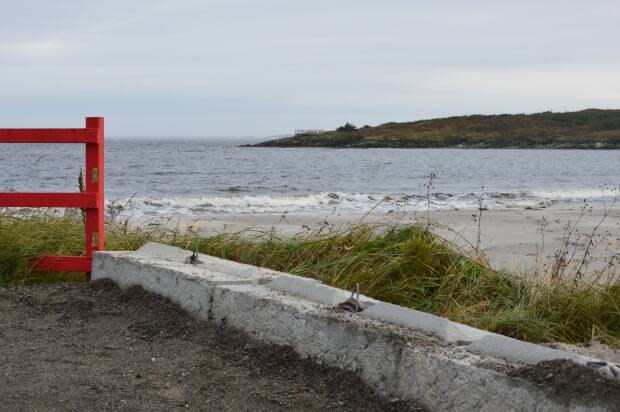This Newfoundland town is bracing for Fiona — and it still hasn't recovered from its last storm


Houses dot the shoreline in clusters, just a hair's width from where the waves lap the shore. On Thursday afternoon, they're shrouded in fog nearly as thick as the tension in the air.
Hurricane Fiona, the massive hurricane hurtling toward Port aux Basques, is the talk of the town.
Two men in a truck stop to laugh off the weather warnings. They're used to wind that fast, they say cheerfully.
Another man nervously shrugs outside his seaside home. It could be bad, he says with a pause, as though acknowledging the impending risk might strengthen the storm.
He's bringing in his boat, though, just in case.
Another woman, whose bungalow lies just a few short metres from a breakwater made up of boulders, says Fiona has her fretting. Past hurricanes, she says, have brought the waves nearly to her front door.

The low-lying town of just over 4,000 people, on the southwestern tip of Newfoundland, is waiting for a storm that meteorologists say could be one the most powerful to ever make landfall in Canada.
As of Thursday evening, forecasts for Newfoundland's southwestern region tentatively called for three-storey waves, over 100 millimetres of rain, winds over 100 km/h, and potentially destructive storm surges that could batter anything close to the shore.
Port aux Basques has been pummelled by wind and rain in recent memory, too. Last November, widespread flooding washed out portions of the Trans Canada Highway leading in and out of town, stranding residents for days.
Town council applied for disaster relief funding from the province after that, says Mayor Brian Button, who spoke to CBC News outside town hall. They submitted the applications in March, he says, hoping for repairs from the record rainfall and improvements to brace the town against future storms.
Button says he hasn't heard a whisper from the province since.
"Our MHA is trying to work through it, but they still haven't been approved," he said. "We have a few spots in town that we'd like to [have] had more done with, but unfortunately we're not to that stage. Hopefully it doesn't suffer any more damages or cause any more problems."
He points to a few exposed areas, ones that need a buffer from unnerving storm surges like the ones on their way.
"We'd have liked to have all that done by now," he said. "Now we have a storm creeping up on us."

Residents weren't panic-buying on Thursday, but some, like Geraldine Francis, still filled local shops, picking up food and batteries to protect against long-term power outages.
"I make sure I've got my medication, whatever I need. And plenty of water," Francis said.
"It's probably no worse than what I've seen before," she said of the forecast winds. But she's still biting her nails over the potential storm surge. Her house, like so many others, is right by the sea, she said.
Aaron Hayes, too, thinks the swelling ocean poses the most risk, and could lead to people fleeing.

"If it do come this way, we're going to have to watch it. People close to the water are going to have to make an intelligent decision at some point ... to get out of it before it gets too bad, and not leave themselves with water running in their houses," he said.
"They've had close calls before. This might be the time to not take a close call no more, and go over to your mom's or over to your brother's ... leave early, don't leave it too late."
The town's mayor says that undercurrent of fear has taken hold, quietly but surely, in a region that's seen its fair share of menacing weather.
"Living on the coastline, you're always nervous about the way this could go," Button says.
"We're nervous about what we're hearing about this storm."

